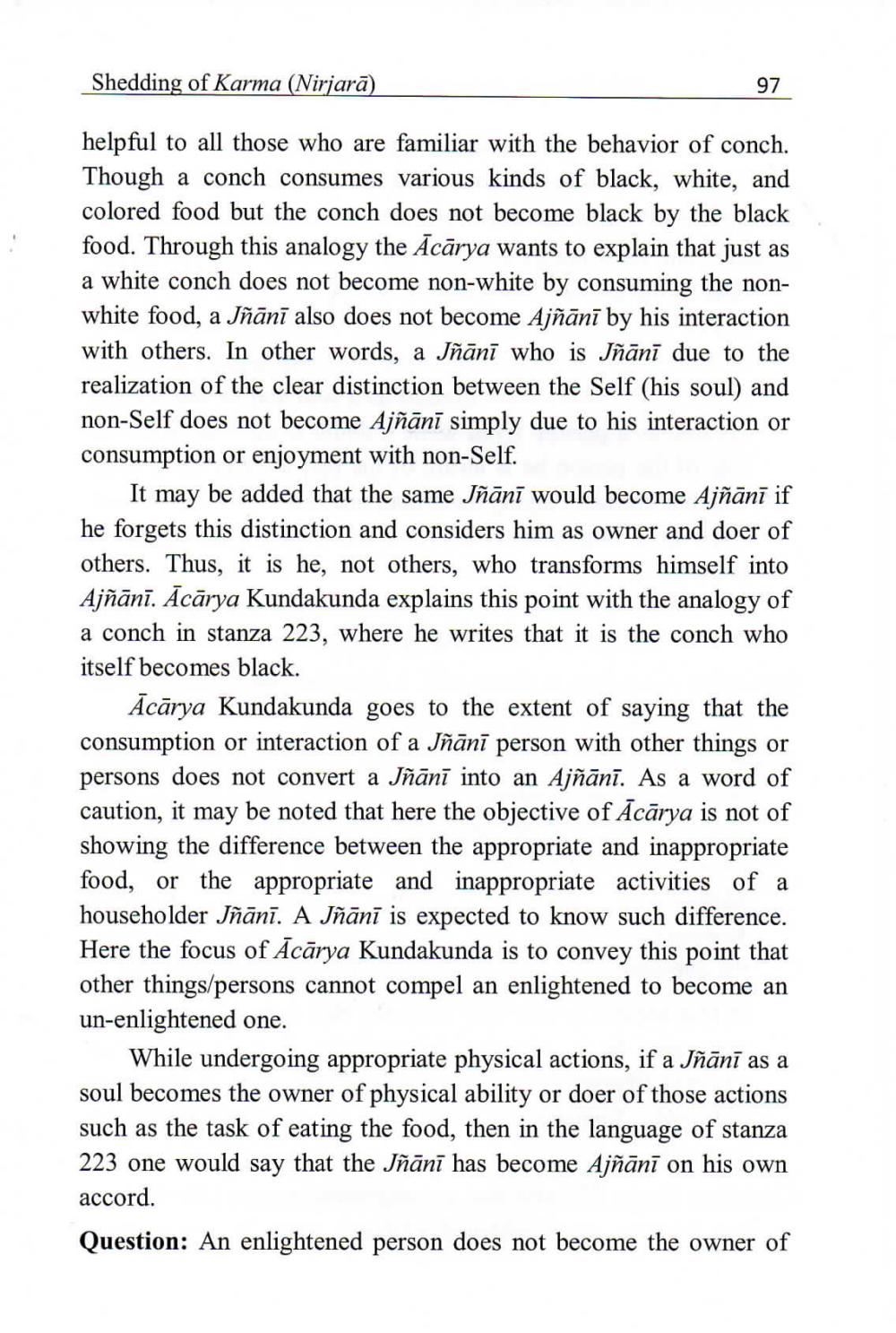________________
Shedding of Karma (Nirjarā)
97
helpful to all those who are familiar with the behavior of conch. Though a conch consumes various kinds of black, white, and colored food but the conch does not become black by the black food. Through this analogy the Acārya wants to explain that just as a white conch does not become non-white by consuming the nonwhite food, a Jñānī also does not become Ajñānī by his interaction with others. In other words, a Jñānī who is Jñānī due to the realization of the clear distinction between the Self (his soul) and non-Self does not become Ajñānī simply due to his interaction or consumption or enjoyment with non-Self.
It may be added that the same Jñānī would become Ajñānī if he forgets this distinction and considers him as owner and doer of others. Thus, it is he, not others, who transforms himself into Ajñānī. Ācārya Kundakunda explains this point with the analogy of a conch in stanza 223, where he writes that it is the conch who itself becomes black.
Ācārya Kundakunda goes to the extent of saying that the consumption or interaction of a Jñānī person with other things or persons does not convert a Jñānī into an Ajñānī. As a word of caution, it may be noted that here the objective of Ācārya is not of showing the difference between the appropriate and inappropriate food, or the appropriate and inappropriate activities of a householder Jñānī. A Jñānī is expected to know such difference. Here the focus of Ācārya Kundakunda is to convey this point that other things/persons cannot compel an enlightened to become an un-enlightened one.
While undergoing appropriate physical actions, if a Jñānī as a soul becomes the owner of physical ability or doer of those actions such as the task of eating the food, then in the language of stanza 223 one would say that the Jñānī has become Ajñānī on his own accord. Question: An enlightened person does not become the owner of




